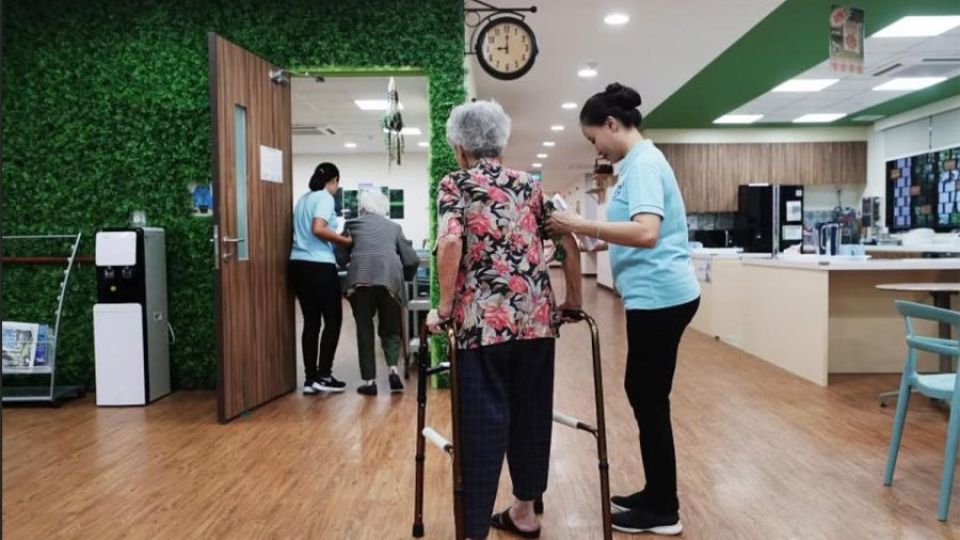SINGAPORE (ANN/THE STRAITS TIMES) – Blue Zones are regions known for hosting the world’s healthiest and most long-lived communities, where individuals frequently reach and surpass the remarkable age of 100 years and beyond, and Singapore is setting its sights on achieving Blue Zone 3.0 status, aiming to establish a culture of healthier living that may take an entire generation to fully realise.
Singapore Health Minister Ong Ye Kung shared this ambitious vision on Thursday during his address at the third Centre for Research on Successful Ageing (Rosa) Symposium held at the Singapore Management University (SMU).
Singapore is one of the six such zones in the world in the popular Netflix docuseries, Live to 100: Secrets of the Blue Zones, as its people have one of the longest lifespans and health spans in the world.
Yet, Singapore is different from the other Blue Zones, such as Okinawa prefecture in Japan, because it does not have a tradition of healthy lifestyles. The pace of life is fast and stressful; many families keep to themselves and rarely talk to their immediate neighbours, said Mr Ong.
The documentary said the authorities have nudged Singaporeans towards healthier lifestyles with infrastructure and programmes.
Effecting a fundamental change in people’s ways of life would take it beyond Blue Zone 2.0, which is how the show’s researcher Dan Buettner describes Singapore at the moment.
In the other Blue Zones – Okinawa, Sardinia in Italy, Icaria in Greece, Nicoya Peninsula in Costa Rica and Loma Linda in California – their populations have lifestyles that are similar: They eat wisely and moderately, with diets rich in fruits, vegetables, grains and nuts.
They also engage in regular, low-intensity physical activities, such as walking and gardening, instead of strenuous workouts, and do not live a sedentary lifestyle. Community bonds are strong, and they live with purpose, however mundane it may be.
Much work lies ahead for Singapore if it is to become a Blue Zone 3.0. The average Singaporean still suffers 10 years of ill health before death, given that the average lifespan here is about 84 years, while the average health span is 74, said Mr Ong.
Narrowing the gap between lifespan and health span is the motivation behind national programmes such as Healthier SG, which aims to bring about behavioural changes by encouraging people to commit to one family physician, not to doctor-hop, and develop a personal health plan with the doctor, he said.
Second, healthier behaviours that are brought about by policies and programmes need to evolve into new lifestyles and habits over time, said Mr Ong.
“It may take a generation to achieve this, but we are determined in our purpose as we become a super-aged society.”
Extended lifespans and health spans are a gift, but the Government needs to look into other areas to help seniors age well, particularly young seniors from their 50s to early 60s, said Professor Paulin Straughan, the director of SMU Rosa.
At the symposium, Rosa revealed findings of a new study that showed that while retirement is a major worry for most Singaporeans, only 34 per cent of Singaporeans rate their retirement preparedness as good, while another 27 per cent do not have a retirement plan.
Prof Straughan, who moderated a session on work transformation on Thursday, told reporters ahead of the session that the culture of work needs to change, because Singapore is super-aged and the people here are living so much longer and, hopefully, healthier.
There is a group of Singaporeans who are well educated, experienced and have lived through the different global events, and they may be rendered invisible once they retire, she said.
“So we really need to rethink what work means – it doesn’t necessarily have to be nine to five, doesn’t necessarily have to be full time versus part time. You can contribute in a manner that you can,” said Prof Straughan.
Thus far, work has always been classified as paid work, but there is also volunteerism, which would suit those who may not need to work for a living but wish to continue contributing to society.
“We don’t expect people to use their life savings to do community service. So why not… give them honorariums, so that they can retire but, at the same time, (play) a very important, socially significant role in the communities that they live in?” said Prof Straughan.
There should also be financial policies to help seniors live well as they age. “We need some help extending our savings because we don’t know when we will expire. And we hope that savings are adequate to support us through our longevity,” said Prof Straughan.
Researchers at Rosa polled 6,430 Singaporeans between the ages of 53 and 78 in January, drawing data from the Singapore Life Panel, a monthly survey of Singaporeans that is representative of the population.
For the study titled Singapore’s Three Generational Packages, Rosa had three policy recommendations for the Pioneer and Merdeka generations and young seniors.
As the pioneers may experience a greater sense of isolation, given a smaller social circle as their peers die, and be more likely to live alone, or be widowed or separated, policies must be able to support social initiatives to combat isolation, the study said.
The built environment can be transformed to support their social inclusivity, a theme that was explored at a workshop at the symposium.
For the Merdeka cohort, policies should promote part-time work, retraining, and financial incentives to promote gainful employment, as approximately half of this group is employed.
For young seniors who are actively preparing for retirement, the meaning of work will likely evolve, and is something that policymakers should consider, the study said.
With longer life expectancy, increasing costs and inflation, financial retirement security for this group demands a fresh perspective, as traditional retirement savings may no longer suffice, it added.



